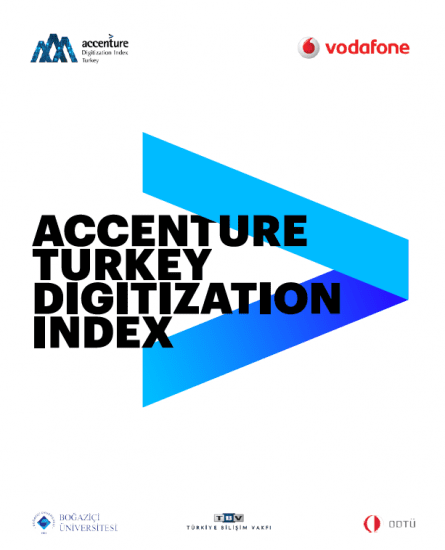In the Accenture Digitization Index study,
companies which successfully integrate digitization into their corporate strategy and their main business objectives to reach competitive advantage; use digital products and services in interacting with their customers in a way that would provide the highest possible customer satisfaction; conduct communication, internal process and operations within the organization in the most efficient way via digital technologies, and are among the largest companies in Turkey in terms of revenue/assets, are defined as “Digitization Pioneers”. In this sense, with a successful digitization process, the leading companies in Turkey can design new business models, gain competitive advantages, discover new growth areas, increase customer satisfaction, boost their service quality and grasp the opportunity to enter new markets. The opportunities that come with digitization can have a huge impact on the Turkish economy and thus strengthen the country’s position in the global market. When we look at the results of this year’s Index in Turkey, we observe that the average score went up to 61% with an increase of 1% compared to last year in spite of the expansion in the criteria set. We would like to thank the participating companies which made this Index study possible, as well as Boğaziçi University and Middle East Technical University for their academic support, the Turkish Informatics Foundation for their industry support, and Vodafone, which has been making great contribution to Turkey’s digital transformation.



















